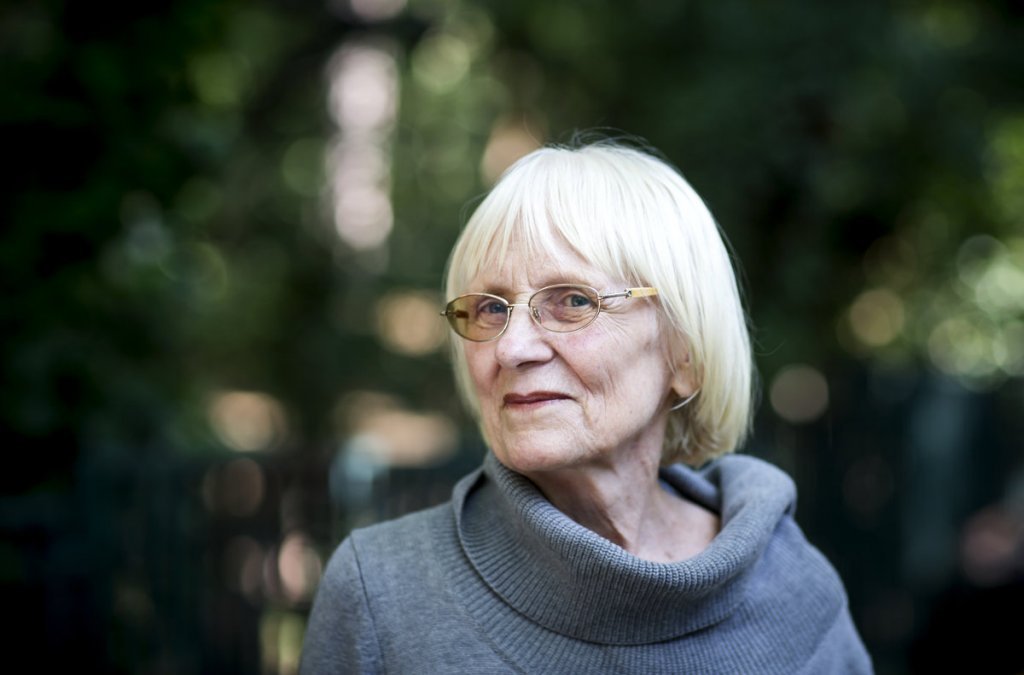
Alta Vášová: Odlety / Take-offs
Bratislava: F. R. & G., 2019
Even though Vášová's Odlety came out at the end of 2019, we need to revisit the book for at least two reasons. Alta Vášová -- a distinguished author of books of prose, film and musical screenplays, theatre plays and children's books, who received numerous awards for her work -- is nominated for the prestigious Anasoft Litera Award for the second time this year (she won the prize for her book Ostrovy nepamäti / Islands of No Memory in 2009). The second reason for going back to Odlety is the book's originality and quality. Vášová's style and her poetics of writing are impossible to confuse with others, as is also true in this book and its genre, composition and style.
Take-offs not only signify getting further from someone or something. Of course they are departures, but at the same time, they stand for getting closer and for an accumulation of memories.
The she-narrator addresses the epic subject of Odlety in the 2nd person and tells her the experiences, feelings, opinions, moods and things she had stored in her memory and in various notes from 2006 to 2018. It is obvious that the epic subject is in fact the author, to whom the authorial narrator addresses her stories. This makes for an interesting and undoubtedly novel writing approach in which dialogues are absent and the mostly nominal sentences have their own rhythm, resembling poetry. [...]
She is introducing many important characters - personalities - from various cultural scenes, both foreign and Slovak, from the past and present alike. Here, as in almost all of her books of prose, she connects the personal with the sociatal and global. She picks certain things from reality that have touched her, upset or calmed her.
Despite that, the authorial narrator is prosaically uncovered only in the parts of the text (graphically distinct from the rest) which begin with the words: "Ahoj, sestrička..." / "Hi sis..."
The heroine moves around in her privacy, thoughts and memories, but she also reflects exterior positions, if they relate to culture, arts, politics, and past and present relatioships. "Do niečoho sa ponoríš, čítaš, pozoruješ, premýšľaš --zároveň akoby pomimo prúdil čas --" / "You delve into something, reading, observing, thinking -- while you do, time seems to flow by --" (p. 76)
These are not "only" memories, however; they are particular associations with events, often only moments, connected with the past, while also functionally reflecting the contemporary world and events. Vášová's texts present semantically vast canvases as well as tiny drawings, memories and associations, questions and answers, truths and sentiments, and more. "Education is losing its value, judgment similarly so, being cultured, well-read, empathetic and polite arouses an amused smile." (p. 140) The author's thoughts intersect like set spaces, quietly leaking into each other -- that's the picture of reality: of a narrow group, of the society and of the world. Most of all, it is the picture of what the author was and is thinking about, and what worries and troubles and perhaps even pleases her.
Mosts texts can be understood as a psychological study about feelings of loneliness, about an introverted and reflecting person, thinking about the primordial things in a man's life, and about the importance and significance of what and how he lived. Wisdom and an unambiguous attitude to good and evil and to justice outweigh the sadness or forsakenness of Odlety; the reflections on betrayal, trust, love and on indifference, politeness and empathu are great. Vášová's texts are philosophical and the lyrical expression does not rob them of reality, on the contrary.
In Alta Vášová's Odlety -- and some of her other books -- we encounter a certain peculiarity: it does not really matter on which page we open it and where we start to read. We will not be losing any narrative thread. The author's prose is non-traditional in the sense that even its lyrical, poetic parts carry some sort of plotline, they describe the background as well as the actual life of a human being (tha narrator), based on unique observation and perception of reality.
The texts in the book are relatively short and varied in terms of genre; they differ in style and graphics; formally, they look like diary extracts or whole entries, notes or musings about things read, seen or heard, and even though they are not joined, there is a strong concurrency binding them together. Such unique approach is hard to find within the field of fiction writing. At one point we find an auto-characteristics of the author's poetics of sorts in the book: "Short sections, few words -- nodal points at times: like when we catch a glimpse of ourselves in the glass of a display window, surprised." (p. 84) In Alta Vášová's Odlety there is not only the sadness and melancholy for what is gone, but, above all, the wisdom from a life lived.
This review originally appeared in the April edition of the magazine Knižná revue (p. 30); LIC translated the text from Slovak